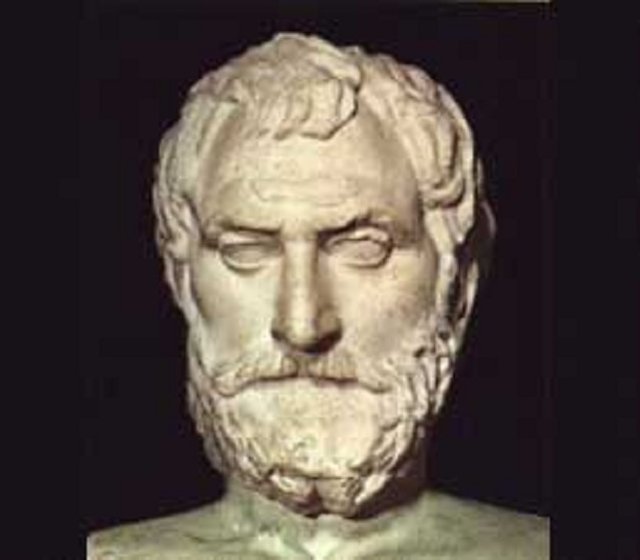Ancient philosophy. Thales - the water as the primary /part 2/
In his critique of Ionian philosophers, Aristotle seeks to present his own understanding of "arche" as a synthesis of "hyle-chile" and "morphy" (the form as an ideal principle) as the realization of the single being in his unity of the ideal and material beginning. This is the teachings of Christophorus at Aristotle. Ionian Naturpilosophy does not consider water, fire, and so on. as specific physical tangible elements, as directly and sensitively perceived. The first thinkers of this period are trying to understand these elements or physical elements - also called the "mother of all things" - as something that remains constantly unchanged in the cycle of physical processes and transformations. With his second statement, Thales "Everything is filled with gods" - does not want to say that in this world we will encounter a god: be it Zeus, be it Athena Paladas or Apollo.
The basic thought in this context is: To philosophize, it means to question the root cause of everything that exists, where things are not considered as things by themselves, one to another or one after another, but that there is a world in the world order / order, system / that there is a single principle in it, from which everything has its origin and from which everything consists. The world is active and immanently penetrated by this principle (later it will also be characterized as Divine) and we encounter it always and everywhere, because it is the beatific foundation of everything. The antiquity's foundational experience of reality is linked to the fact that its explanation of the world does not only lie in the perception of material materiality, but seeks to seek the root cause of its secondary forms. At the same time, by placing the problem of the origin of the existing philosophical thinking, he wants to avoid that position in which he can be sacrificed for the pure faith, based only on postulates. That is why, in order to see the origin of everything in the water, the water, which, in all its different states, nevertheless remains water, means that this origin is justified in something eternal / an eternally identical beginning to itself / ice, rain, river or sea always remain what it is. So, as the water in its various transformations always remains as a substrate, constantly identical to itself, Thales calls it "arche", because precisely with this property it is able to be the first-ground of what always arises, cat something new with it in its development passes, namely space.
The answer that Thales gave to this question, again, according to Aristotle, was that everything came from water, all that eventually passed into water and floating in the water in the water. In communicating this, Aristotle also makes the assumption that Thales has come to the basic understanding perhaps by observing that the food of all beings is moist, that the heat itself is derived from moisture, and that the seed of the seed all the animals are damp. Others accept, Aristotle continues, that those who have lived in ancient times long before the modern generation of Thales and dedicated themselves to theology - that they also had the same understanding of the essence of things. Because they depicted the ocean as the forerunner of everything that originated, and thought the gods swear by the water, and it is known that we swear by what is most revered, and the most revered is what is the oldest. Thus, Aristotle gives us two sources for the view of Thales: natural-science observations and ancient mythological traditions. As for the latter, it is indeed true that the ancient religious teachings of the East place the water at the beginning of everything. This also says in the first chapter of the Bible, "that the Spirit of God was carried over the water." Homer, in his "Iliad", says that everything comes from the ocean. I
